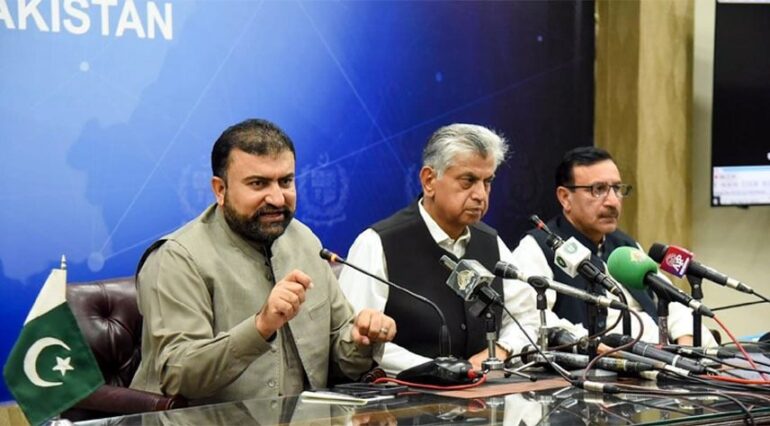Caretaker Interior Minister Sarfraz Bugti issued a stern warning on Friday, declaring that all illegal immigrants, including 1.73 million Afghan nationals, must leave the country by the November 1 deadline or face expulsion.
Bugti emphasized a “no compromise” stance, stressing that this policy applied to all individuals lacking proper documentation, regardless of their nationality.
“In the meetings about the expulsion of Afghan refugees, all stakeholders were present. In that meeting, it was decided that a grace period should be given to them,” Bugti stated.
He revealed that some immigrants expressed a desire to return voluntarily, facilitating a smoother transition.
The interim government’s decision, announced earlier this month, stems from alarming statistics linking Afghan nationals to 14 out of 24 suicide bombings in the country this year.
The authorities believed that this move was crucial in curbing violence, particularly in the Khyber Pakhtunkhwa and Balochistan provinces, and amidst growing tensions between the Pakistani government and the Taliban administration in Kabul.
Bugti clarified that the expulsion policy extended beyond Afghan nationals, targeting all undocumented residents.
He assured “People, no matter which nationality they belong to, will not be troubled if they have a valid visa and other required documentation. We’re just [planning to] expel illegal immigrants.”
Thousands of Afghan nationals have already begun leaving Pakistan following the government’s announcement, citing economic conditions as a driving factor behind their decision.
Critically, the United Nations (UN) has weighed in, urging Pakistan to allow refugees residing in the country to exit voluntarily and emphasized refraining from pressuring them.
Pakistan has a history of hosting Afghan refugees, dating back to the Soviet Union’s invasion in 1979. Presently, around 1.33 million registered refugees hold Proof of Registration (PoR) cards, while 840,000 possess Afghan citizenship cards, according to the United Nations High Commissioner for Refugees (UNHCR) data.
Currently, there are three categories of Afghan nationals who have been residing in Pakistan. First category involved those who had PoR cards staying in the country since 1979. Other category has those residents who were verified by the previous Afghanistan government in 2016.
No action would be taken against these two categories, a senior cabinet member announced in a news conference recently.
However, largely those illegal immigrants who came in Pakistan after US withdrawal from Afghanistan will be facing action for not having legal documents.



